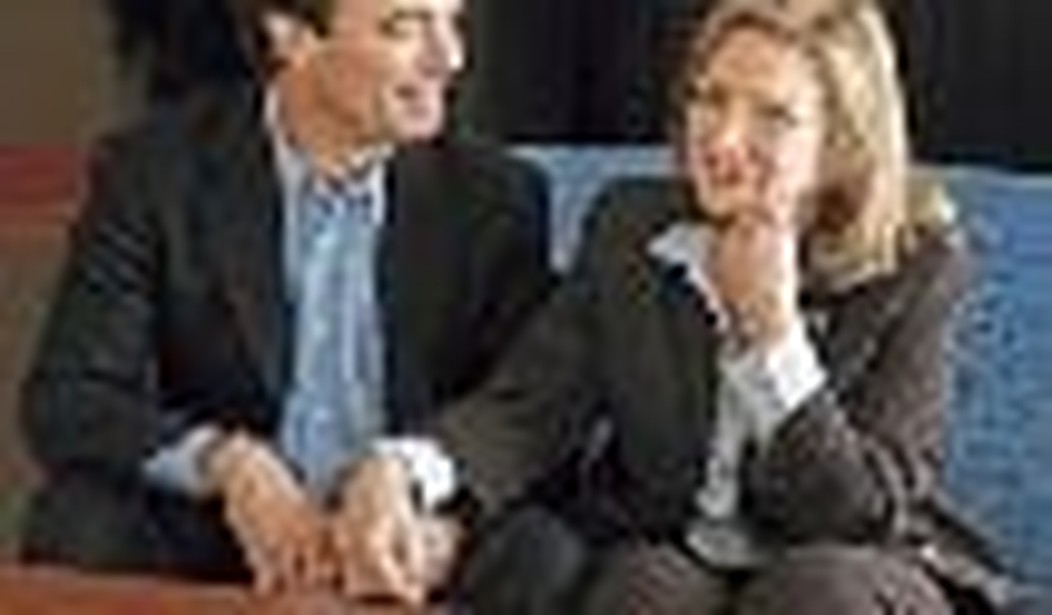At this point, we’ve come to a rare national consensus — not on the Russo-Georgian war, or gas prices, or even Michael Phelps, but on former presidential candidate John Edwards.
Whether you believed that he was the one who could heal the rift between the Two Americas or you thought all along that his great passion was his hair, whether you feel that what happens in a marriage has no bearing on public life or you’re convinced that a person’s behavior in private life is a crucial indicator of character, by now you concur with the conventional wisdom: John Edwards is a putz.
John may have begun digging his own grave when he was introduced to Rielle Hunter in the bar of the Regency Hotel in 2006. He certainly shoveled himself deeper when he met up with her last month in the middle of the night at the Beverly Hilton. But there’s no question that his now-infamous Friday night confessional sent him hurtling down to rock bottom.
Even if we put aside the ironic narcissism of John’s admission that he was narcissistic and therefore he sinned, it now seems quite evident that the tale he’s been peddling is far from the whole story (even the mainstream media are finally on to it). Given that John revealed the extent of his affair to his own wife “in installments,” as People magazine puts it, it seems apparent that he’s not through with the rest of us. From gossip bloggers, to Republican senators, to his own former campaign manager, the general consensus is that he’s still lying and his political goose is cooked.
But what about his wife?
On Elizabeth Edwards, we have no such consensus. In fact, we seem to be developing two distinct schools of thought: Elizabeth as tragic/heroic victim and Elizabeth as down-in-the-mud-with-her-husband villainess. Bluebeard’s wife versus Lady Macbeth, as it were.
Predictably, People has taken the lead on Elizabeth as tragic heroine. In a fairly skimpy article, various friends and relatives are quoted on her anguish and her dedication to her children. She’s being strong in the face of hardship, the argument goes, because she’s that kind of gal.
Another such argument goes that, just like any other loving wife, in fact just like you and me, she loved him and wanted to believe him, and then there’s the kids. Women who have long idolized the plainspoken, unglamorous politician’s wife with a mind of her own, are chiming in with their paeans to Elizabeth as victim and heroine.
But there are those who find plenty of blame to place right on her. Nobody is suggesting that Elizabeth told John to go out and find himself a bimbo (“Honey, now that my cancer’s in remission, you could use a little reward for being so supportive during all that chemo…”), though Rush Limbaugh, in classic form, argued that she drove him to it.
The soft critique is that she’s an enabler. The more pointed version substitutes political wife for loving wife and suggests that she’s been right in there with him, her eyes on his prize, plotting strategy to put him ahead and thus get what they both want. Remind you of any betrayed political wives? Oh yeah, it’s Elizabeth 2008 as Hillary 1998.
Elizabeth herself has been, understandably, pretty quiet, and the few signals she’s sent out are, understandably, mixed. On the one hand, she issued her own statement in semi-support of her husband; on the other, unlike Hillary Clinton and Silda Spitzer, she refused to accompany him on his perp walk (i.e. sit beside him with a pained smile while he exposed himself on national television).
That we should rush to interpret Elizabeth in the face of her own silence is no surprise. This is the celebrity-gossip-meets-everybody’s-opinion era, when doctors and psychologists are quoted in the pages of gossip magazines with definitive opinions on people and events they know nothing about, and the rest of us are making our voices heard all over the blogosphere.
That we should try to make her into either a victim or a villainess is even less of a surprise. It doesn’t take a feminist to point out that we prefer our women really good or really bad (take Martha and Mary Magdalene, for starters), especially when we know their men are bad.
But the image that keeps coming to my mind is Job. Some women are lucky to have nothing to worry about. They have kind husbands and healthy children, good educations, and nice homes, sufficient income, and robust health all around. If you have everything, like Elizabeth did, what do you worry about? A child dying, a cancer diagnosis, a husband having an affair.
Elizabeth Edwards hit the trifecta, and it’s pretty unimaginable: your son dies, you’re diagnosed with cancer, your husband has an affair, your cancer returns, and it’s all lived out in full media color. It’s the train wreck par excellence, and, unable to imagine what it must be like, we resort to analyses that fit our pre-existing molds and models, even though they are inevitably insufficient.
Certainly John Edwards is doing his best to turn the tragedy of Elizabeth’s life into farce. But there’s still a human tragedy there, a tragedy that presumably is never far from her mind: three kids who soon enough will not have a mother — and will be left with a father who’s a putz.









Join the conversation as a VIP Member